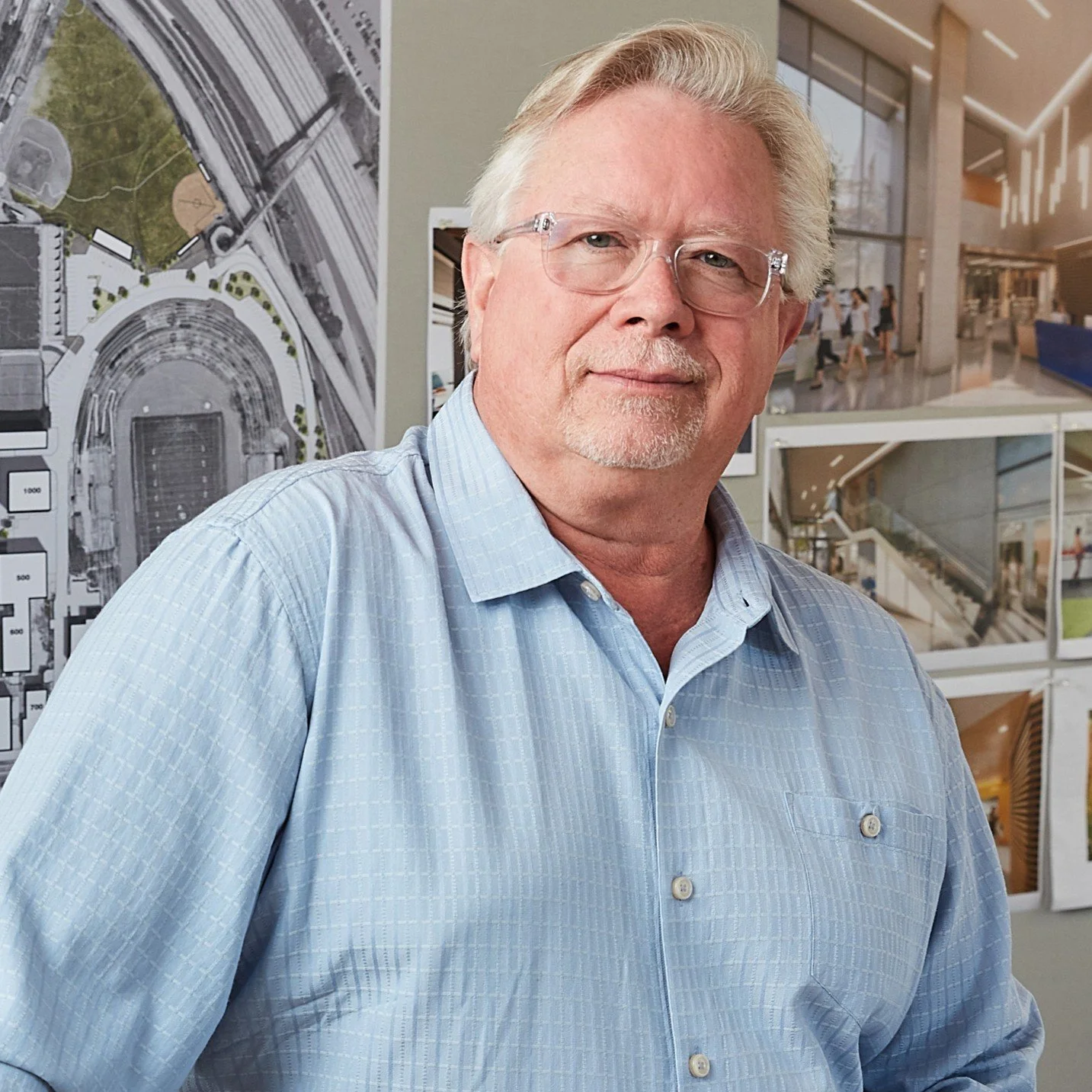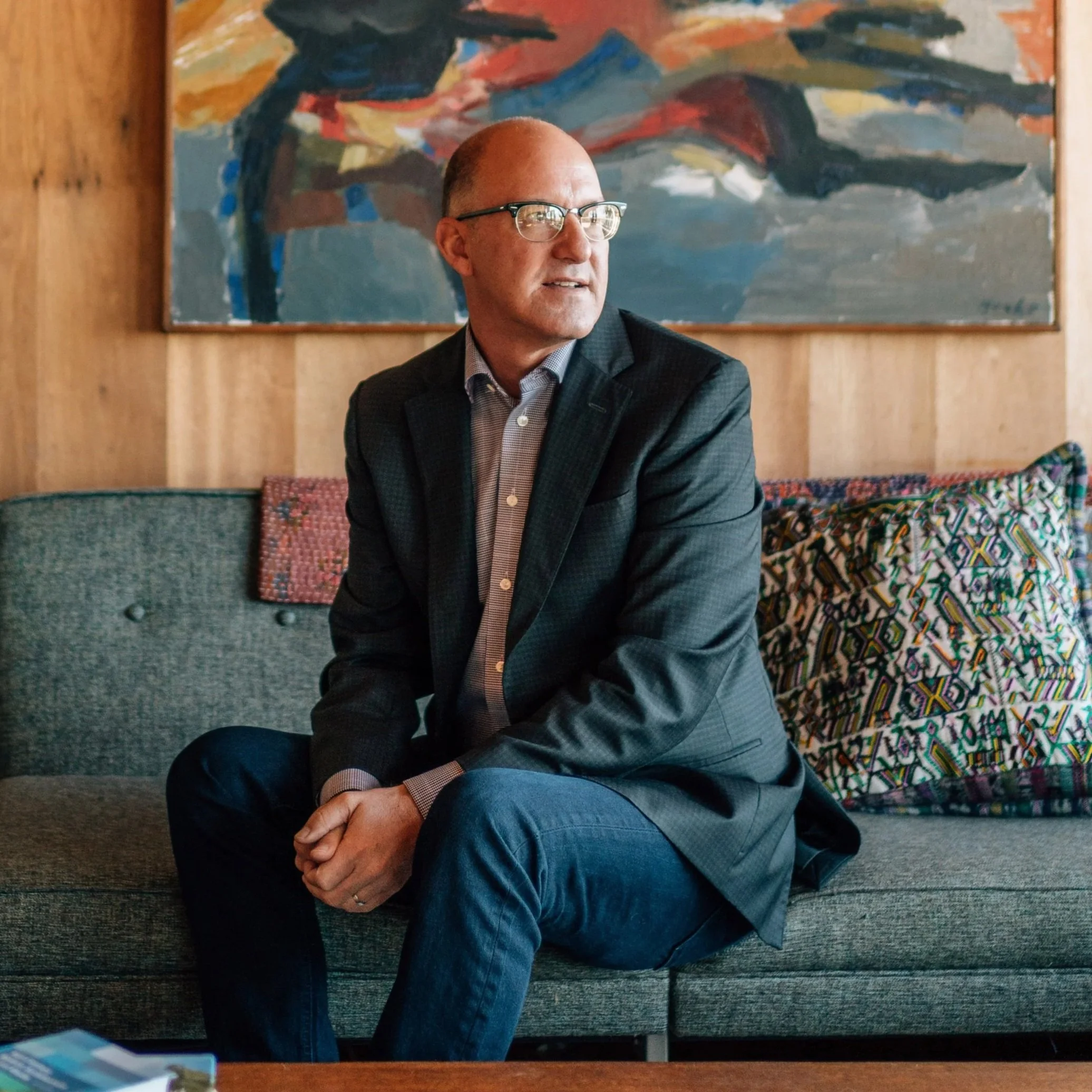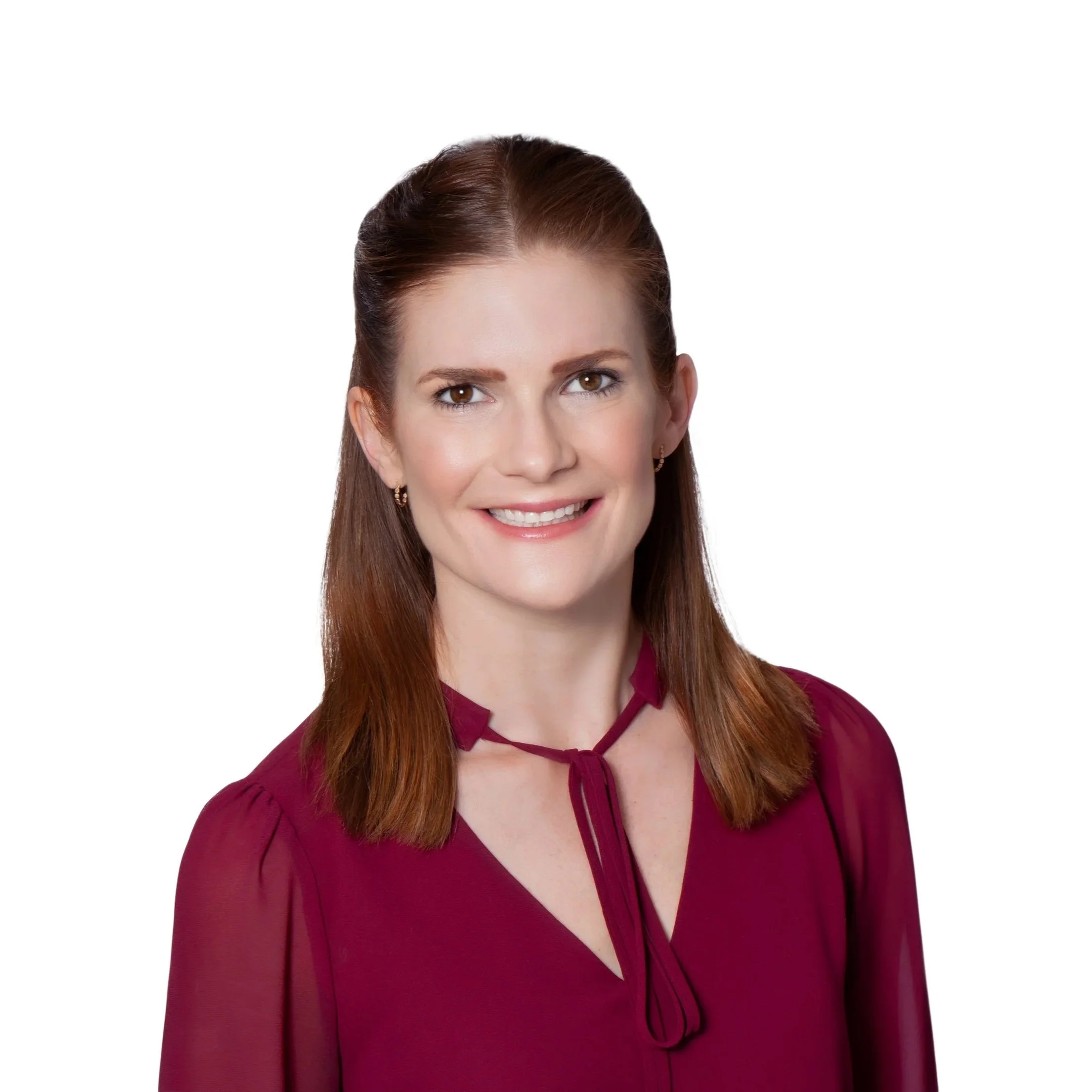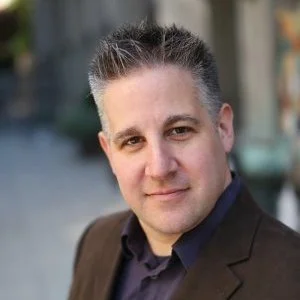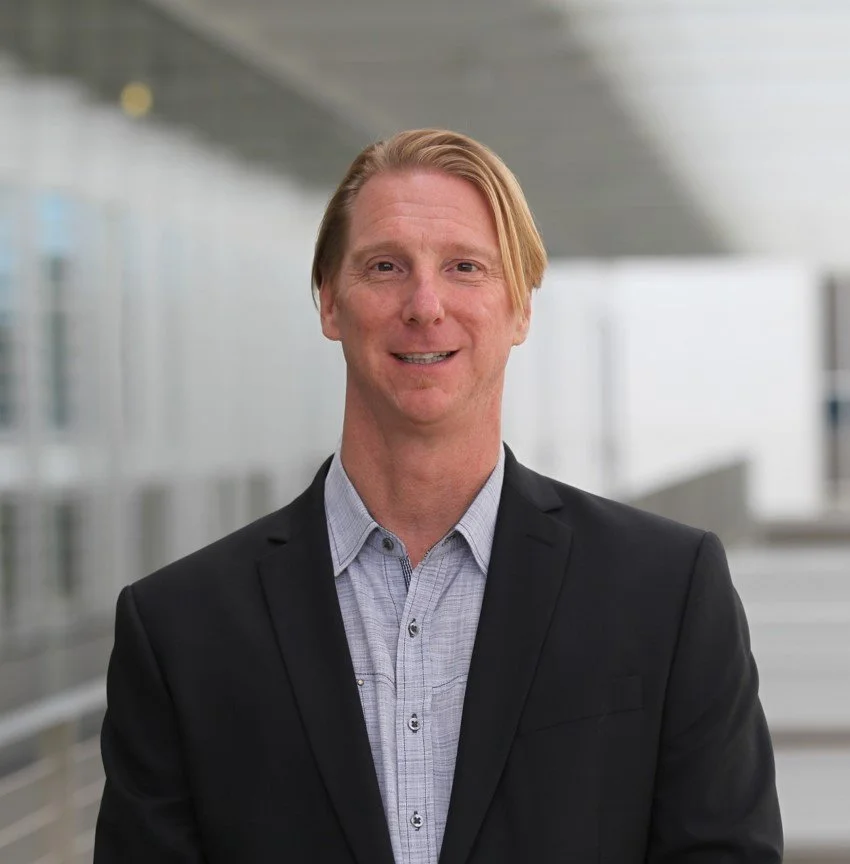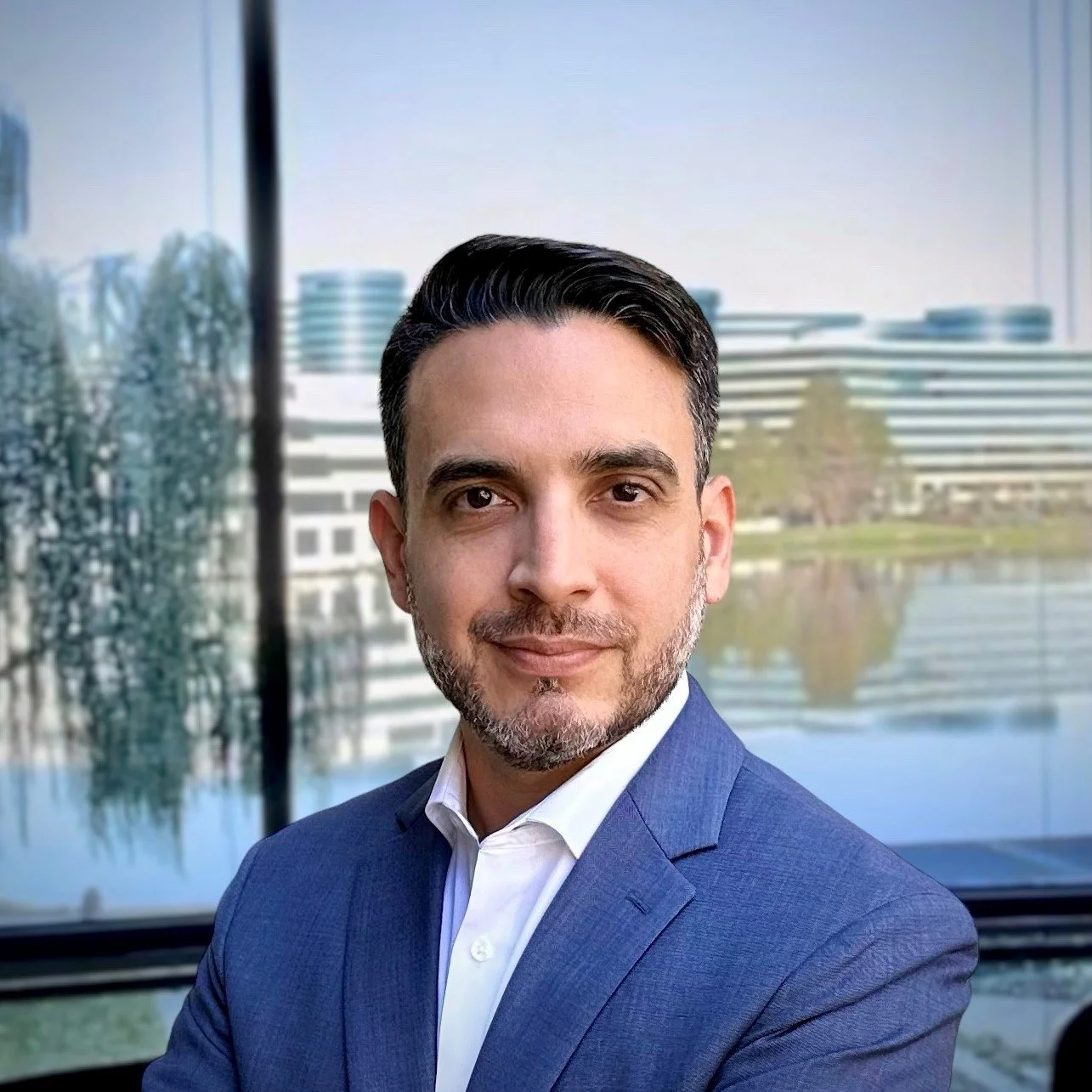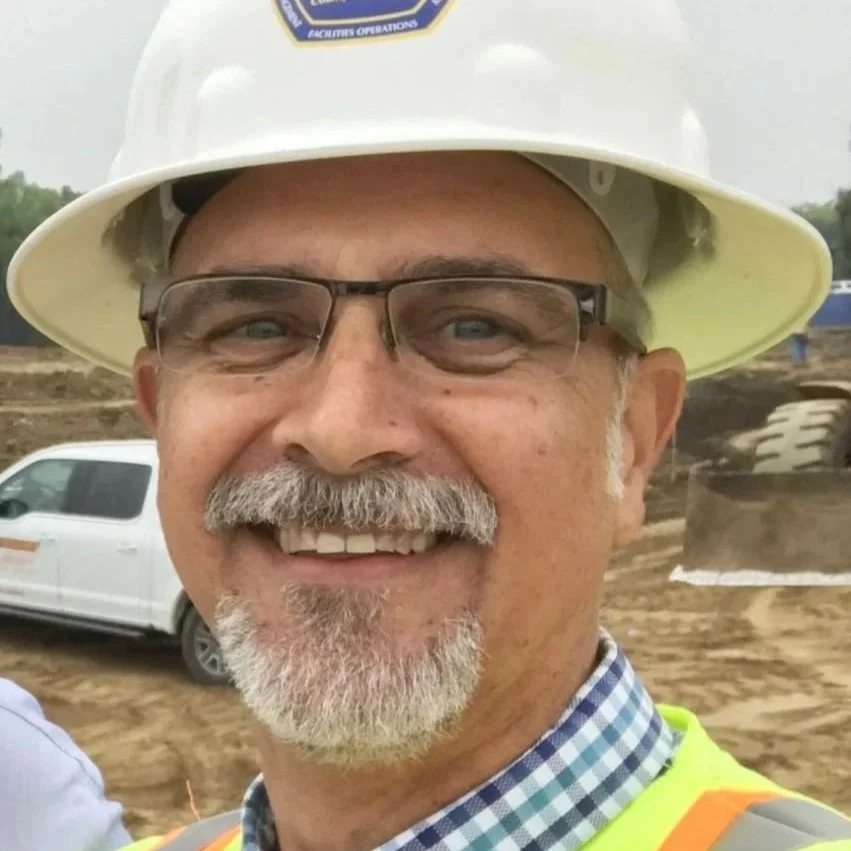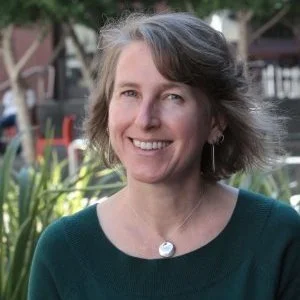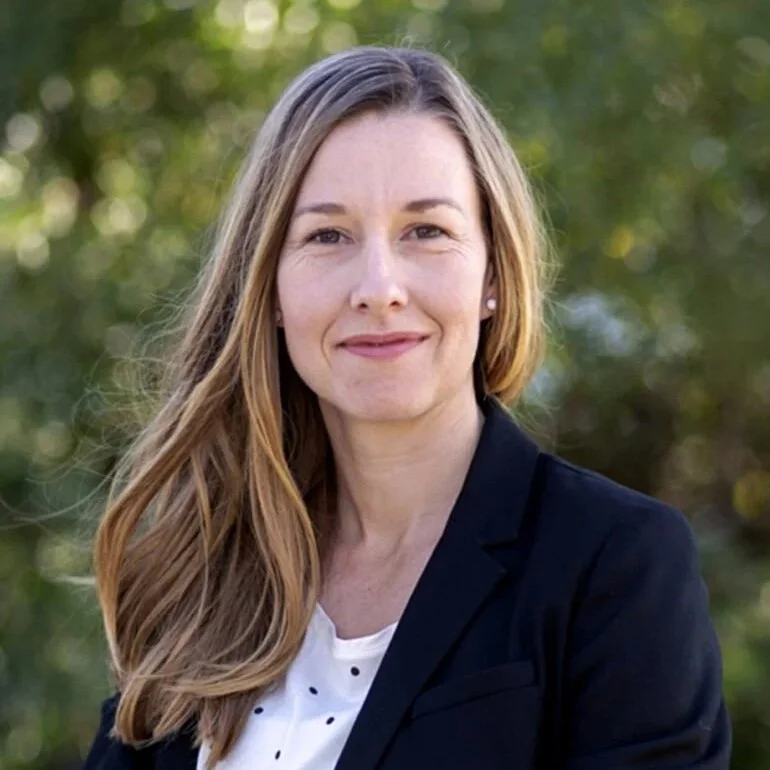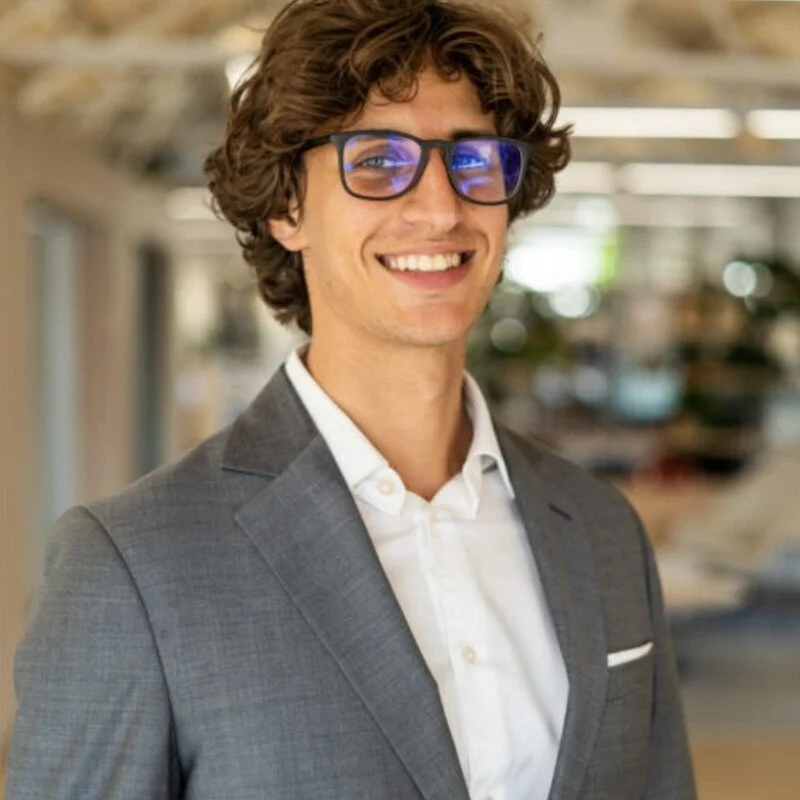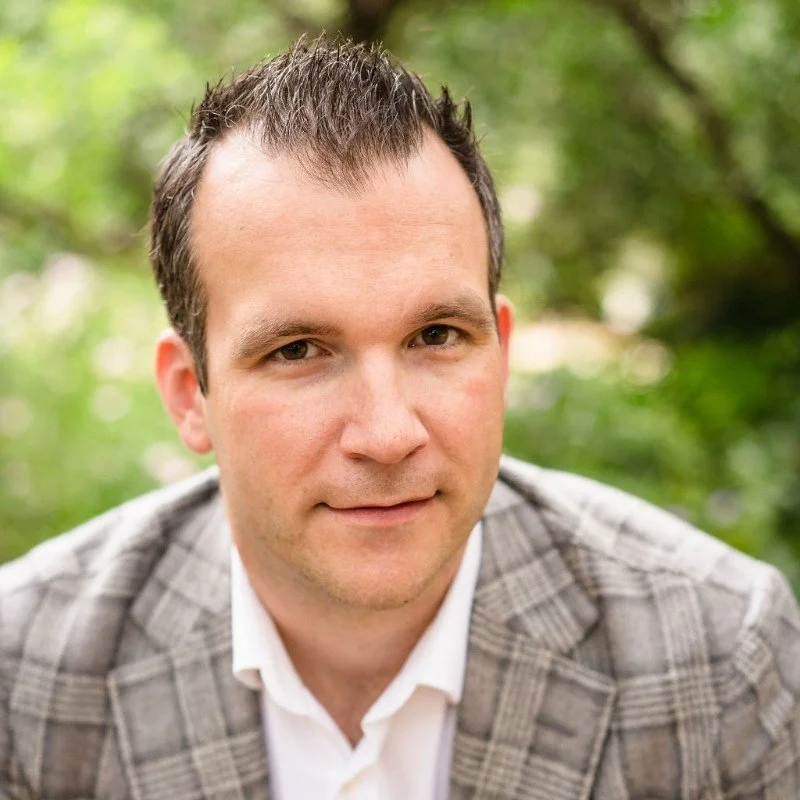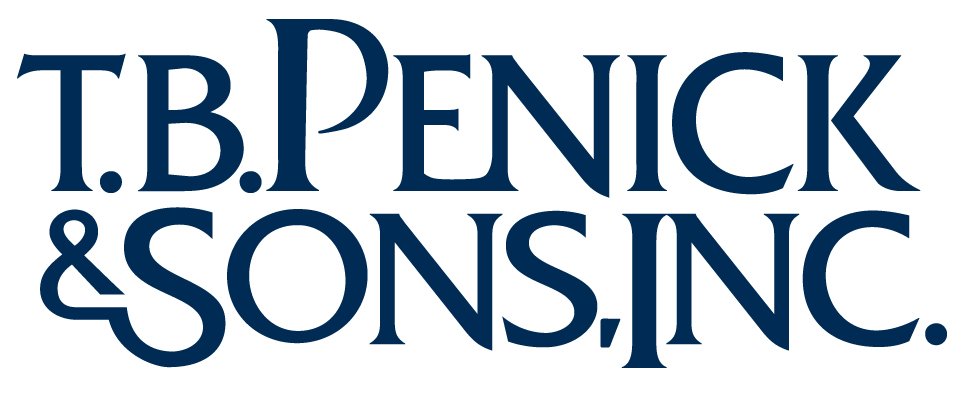Converge San Diego brings together bold ideas and diverse voices to explore resilience in design. Below you’ll find the sessions selected for this year’s conference. All programs are open to attendees on a first-come, first-served basis.
This year’s sessions are organized across four core tracks, each highlighting a different lens on resilience:
Climate adaptation and regenerative systems: strategies that address climate change while restoring ecosystems.
Equity and social resilience: design approaches that foster inclusion, access, and community strength.
Digital resilience and AI integration: tools and technologies shaping the future of practice and the built environment.
Economic and community durability: frameworks that ensure stability and long-term impact for people and places.
Explore the program descriptions below to see how these themes come to life through case studies, research, and practice.
Keynote presentations | 1:00 pm
Taylor Guitars, Scott Paul
An unexpected take on materials and craft, exploring what music-making and architecture have in common.
Scott Paul, Taylor Guitars
Scott Paul is the Director of Sustainability at Taylor Guitars, a truly distinctive role within the musical instrument manufacturing industry. In this capacity, he represents the company in various policy forums at both national and international levels. Scott oversees Taylor Guitars’ global sustainability initiatives, which include the award-winning Ebony Project in Cameroon. This project has successfully planted over 40,000 ebony trees and has also led to the creation of original peer-reviewed scientific research.
Before joining Taylor Guitars, the majority of Scott’s career was spent as a forest policy specialist and activist, including 14 years at Greenpeace. He has worked for the White House Office on Environmental Policy and participated regularly in the UN forest policy dialogue since 1995. He has served on multiple boards of directors, including the Forest Stewardship Council. He currently serves as the Board Chair at Tree San Diego. His work has taken him to the Amazon, the Congo Basin, Southeast Asia, the Canadian boreal, Alaska, and Russia. He is also the first person in over 100 years to be arrested for Sailormongering.
Architects Mosher Drew
A lively conversation with Ed Holakiewicz, AIA, Keith York, and Daniel López-Pérez on resilience, history, and the San Diego spirit that keeps a firm thriving for 75 years.
Ed Holakiewicz, AIA | Architects Mosher Drew
Ed has over forty years in the profession with domestic and international projects at AC Martin, Carrier Johnson + Culture, gkkworks, and he is currently Senior Principal and President of Architects Mosher Drew. He is a current Board Member of ACE Mentor San Diego, with experience over a thirty-five-year span as Guest Lecturer and Adjunct Professor at Cal Poly Pomona, USC, Woodbury University and The NewSchool of Architecture + Design.
Daniel López-Pérez | University of San Diego
Daniel López-Pérez is a Professor of Architecture and a founding faculty member of the Architecture Program at the University of San Diego. He holds a PhD from Princeton University and is a recognized though-leader in design research and construction technology innovation. In professional practice, López-Pérez is the founder of Polyhaus, a patented model for rapid-housing, that brings together the environmental resilience of mass-timber with the advancements of its digital fabrication and fast assembly, to address the nation’s housing crisis. He is also the author of R. Buckminster Fuller, Pattern Thinking (Lars Muller Publishers, 2020), which was included in the Los Angeles Times critic's list of "Best Art Books of 2021" and is now on its second edition. López-Pérez is the recipient of numerous research grants and awards including from the Spanish Ministry of Culture (ACE), Mexico’s National Council for Culture and Arts (CONACULTA), Princeton University’s Barr Ferree Foundation, the Graham Foundation, and two Faculty Research Mentor Awards from the University of San Diego.
Keith York | Author and Curator
Keith York, a native San Diegan documents the region’s modernist architecture heritage at modernsandiego.com, as well as lectures, publishes, and curates on the topic. As a real estate professional, Keith works with buyers and sellers of distinct architect-designed properties. Following his widely-published restoration of Craig Ellwood’s Bobertz Residence (1953), Keith restored architect Sim Bruce Richards’ personal residence in Point Loma and secured its designation as a historic site. His recent book, The Sensuous Environment: Sim Bruce Richards, Architect, serves as a capstone to decades of research on the San Diego designer. Serving as both author and publisher, Mr. York has recently issued Mosher Drew: The First 75 Years, The Distinct Modernism of San Diego and a trilogy of books on architect Craig Ellwood. Across the last decade, Keith has curated several exhibitions Frank Lloyd Wright’s Legacy in San Diego: The Taliesin Apprentices (2015), Julius Shulman: Modern La Jolla (2019), Julius Shulman: Modern San Diego (2019), and The Sensuous Environment (2023).
Detailed Program Descriptions
Session 1 | 2:00 - 3:00 pm
How to be the Owner of Choice for Decarbonization
+ 1 CEU || Climate adaptation and regenerative systems
Guggenheim Theatre
As climate commitments and regulations accelerate, building owners play a critical role in embedding decarbonization from day one. This session explores how to translate sustainability goals into actionable procurement strategies—starting with RFPs, Owner’s Project Requirements (OPRs), and technical specifications. UC San Diego will share how they are aligning internal teams, reinforcing campus decarbonization goals, and responding to policies like Buy Clean and CalGreen. An architect and contractor will offer insights into executing performance-based specifications, early carbon modeling, and life cycle assessments. Attendees will leave with practical strategies and real-world examples of how to ensure low-carbon priorities are clearly defined, achievable, and carried through from planning to construction—setting the stage for high-performance, climate-ready buildings.
Presented By: Celia Hoag, DPR Construction | Eric Corey Freed, CannonDesign | Walt Kanzler, University of California - San Diego
Celia Hoag, DPR Construction: Celia Hoag is DPR Construction’s Sustainability Leader for Southern California and Arizona, with 18+ years of experience in sustainable, high-performance design. A licensed engineer, she leads initiatives in zero-waste construction, salvageability, and reducing single-use plastics. Celia also co-leads DPR’s BuildHer women’s ERG, championing equity and inclusion in the industry. She was named a 2023 Woman of Influence in Construction by the San Diego Business Journal and ENR’s 2024 Top Young Professional for California.
Eric Corey Freed, CannonDesign: Eric is a nationally recognized sustainability leader committed to transforming the built environment’s role in the climate crisis. Since joining CannonDesign, he has advanced the firm’s focus on regenerative design, net positive development, and circular economy strategies. A frequent speaker and workshop facilitator, Eric helps organizations align their ESG and CSR goals with impactful, carbon-smart solutions. He has contributed to over 40 LEED and net zero projects, consulted on hundreds more, and authored 12 books on sustainable building. Known for challenging the status quo, Eric has lectured in all 50 states and seven countries—and once even climbed the Pyramids.
Walt Kanzler, University of California - San Diego: Walt Kanzler is Senior Director of Project Quality Management at UC San Diego with over 30 years of experience in sustainable planning, design, construction, and facilities management across public and private sectors. A licensed architect and LEED Fellow, Walt leads initiatives in quality assurance, life cycle commissioning, and design integrity. He co-chairs the UC Green Building Working Group and UC San Diego’s Green Building Action Group, and is a former board member of the San Diego Green Building Council. Walt is a change agent focused on aligning research, education, and high-performance capital projects in higher education.
Future-Ready Infrastructure: Advancing Resilience Through Workforce Innovation
+ 1 CEU || Digital resilience and AI integration
Room 213
As the demand for resilient and sustainable infrastructure grows, architects and design professionals are uniquely positioned to lead the integration of advanced technologies and innovative workforce strategies. This session explores how tools like AI, digital twins, and virtual design, combined with inclusive and multigenerational collaboration, are shaping the future of project delivery. Attendees will examine real-world case studies that highlight how interdisciplinary approaches drive resilient design solutions while addressing challenges like labor shortages and shifting workforce demographics. Participants will leave with actionable insights on building diverse, tech-savvy teams and applying strategies that enhance both creativity and resilience in the built environment.
Presented By: Isaac Kontorovsky, BKF Engineers
Isaac is an accomplished professional with a wealth of experience in both private and public projects throughout California. With an impressive track record in the Civil Engineering & Construction Industry, he has actively contributed to a diverse range of challenging developments. His portfolio boasts an array of residential, academic, civic, and commercial projects, performed for a large client list that including government agencies and Fortune 500 companies. His strong leadership is branded on disruptive innovation, challenging the status quo in extremely collaborative ways, helping development teams reach highly efficient solutions that hinge on the use of new technologies and industry trends.
Product Sustainability Standards: Transparency for Industry Transformation
+ 1 CEU | HSW || Climate adaptation and regenerative systems
Room 214
Every material choice made on a project is an opportunity to define a healthier future for our industry. This presentation will introduce how Gensler sees its Product Sustainability Standards (GPS), an open-source tool that gives designers, manufacturers, and clients a data-backed road map on specifications for 18 of the most used, high-impact product categories in architectural interior projects. This session will explain how the standards are built upon industry norms and shared data language, aligning with initiatives by industry organizations, regulatory standards, and third-party certifications to guide responsible material selection that prioritize sustainability and health. Attendees will learn how criteria was developed and how it can be implemented, including a case study demonstrating the product selection process for the American International University Kuwait.
Presented By: Kara West, Gensler | Juan Sora, Gensler
Kara West, Gensler: Kara West is the Resource Librarian and a Senior Associate at Gensler San Diego. She co-leads the firmwide Sustainable Material Resource Group and serves on the Design Resilience team. A champion of the Gensler Product Sustainability (GPS) Standards she is the training lead on the Core Team and is the vetting lead for the flooring categories. Kara earned her Master’s in Library and Information Science from San Jose State University and B.A. in Art History from UC Santa Cruz. Prior to joining Gensler, she had 15 years of museum/library collection experience for both non-profits and the City of San Diego.
Juan Sora, Gensler: Juan Sora is an Associate and Senior Designer at Gensler San Diego who co-leads Design Resilience in the office with a focus on efficient workflows and technology. His experience with digital platforms like Tally has allowed him to show both clients and peers how sustainability is part of making design future proof, and not a siloed synergy. Juan was born in Colombia and grew up in Costa Rica, where he earned his bachelor's in architecture and urban planning. Both countries have ambitious sustainability goals, where Juan draws inspiration to challenge the built environment and our commitments to future generations.
Providing Places for Nurturing our Community Strengths: County of San Diego Health & Human Services Facility Case Studies
+ 1 CEU | HSW || Equity and social resilience
Room 211/212
Come hear about a wide range of resiliency initiatives used in developing new facilities at the County of San Diego. We will explore how the County achieves LEED Gold, Net Zero Energy and reductions in embodied carbon in two of our new Health and Human Services facilities - while advancing equity, wellness, and resilience in our communities. Award winning case studies of the rural Ramona Community Resource Center and urban Southeast Live Well Centers will be highlighted. Presenters will share lessons learned in integrating performance goals with meaningful social value.
Presented By: Melanie Tylke, County of San Diego | Luis Peris,AIA, PE LEED AP, County of San Diego Department of General Services (DGS) | Colleen FitzSimons, County of San Diego
Melanie Tylke, County of San Diego: Melanie Tylke is Project Manager with the County of San Diego Department of General Services, having worked at the County for over 10 years on projects for clients including the Sheriff Department, Animal Services, Health and Human Services Agency, Parks and Recreation, Libraries and more. Her background is in urban planning and sociology, which lends to her unique understanding of the built environment and how people interact within those spaces. She is a certified planner from the American Institute of Certified Planners of the American Planning Association.
Luis Peris,AIA, PE LEED AP, County of San Diego Department of General Services (DGS): Both an architect and an engineer, Luis pursues seamless multidisciplinary integration in all construction projects. It all starts with a strong team and comprehensive strategic plan. The Department of General Services is responsible for the planning, design, construction, and remodel of buildings and structures owned and leased by the County.
With a most diverse geography encompassing 4,600 square miles, San Diego County is engaged in an extensive capital development program with the goals of providing our community with effective public services and infrastructure, delivering comfortable and well-equipped spaces for all staff, and preserving the County’s historic, environmental, and cultural assets.
Colleen FitzSimons, County of San Diego: Colleen FitzSimons, PMP, CEM, LEED AP, is a Project Manager in the County of San Diego’s Energy and Sustainability Program, where she advances decarbonization and performance strategies across public facilities. Formerly Executive Director of the San Diego Green Building Council, she brings nearly two decades of experience in high-performance design, advocacy, and community education. For the Ramona Community Resource Center, Colleen provided sustainability guidance and verification support to achieve Net Zero Energy, reduced embodied carbon, and LEED Gold certification. She is dedicated to creating healthy, climate-positive communities through design and policy.
Design as Recovery: Personal and Collective Resilience After Trauma
+1 CEU || Equity and social resilience
Room 318/319
How do we rebuild when everything breaks, our bodies, our careers, our sense of purpose? In this profoundly personal and design-centered session, I share my journey of resilience after a life-altering injury that left my dominant arm permanently paralyzed. Rather than stepping away from practice, I founded a design-build studio that uses architecture as a tool for healing, empowerment, and community resilience. Through projects ranging from ADUs to off-grid retreats, I explore how design can foster equity, cultural relevance, and social transformation. Attendees will gain insight into how personal adversity can inform stronger, more empathetic design practices, and how architecture can strengthen people, places, and purpose.
Presented By: Tomas Ortiz, Orto Studio
I am a design-builder and founder of Design Force Builders and ORTO Studio, an interdisciplinary design studio rooted in equity, cultural relevance, and community resilience. With over a decade of experience in architecture and construction, I design spaces that foster connection, reflect cultural identity, and respond to community needs. After a life-changing accident that left my dominant arm permanently paralyzed, I rebuilt my career and practice from the ground up. My work spans ADUs, home retreats, and small-scale developments that strengthen communities through inclusive design, hands-on construction knowledge, and a belief in architecture as a tool for healing and empowerment.
Session 2 | 3:25 - 4:25 pm
Designing with Native Plants to Strengthen Place and Ecology
+ 1 CEU | HSW || Climate adaptation and regenerative systems
Guggenheim Theatre
Native landscapes are more than low-water solutions; they are expressions of place and ecology. This session explores integrating native plants across diverse projects, from parks to urban infill, to strengthen connections between people and the San Diego landscape while supporting biodiversity and resilience.
Presenters will share lessons learned from both design and implementation, offering practical strategies for working with native plants at different scales. Attendees will gain tools to advocate for native planting as an essential element of sustainable site design, framing landscapes not just as amenities but as vital components that create a strong sense of place while delivering measurable environmental benefits.
Presented By: Jennifer Montgomery, Schmidt Design Group | Patrick Montgomery, Native West
Jennifer Montgomery, Schmidt Design Group: Jennifer Montgomery, PLA, SITES AP, LEED AP BD+C
Jennifer Montgomery has devoted her career to sustainable landscape architecture practices, developing an appreciation for innovative site-specific design and construction solutions. She brings her passion for sustainability to her work on a wide variety of projects, from parks and master plans, to commercial and institutional facilities. Jenn’s passion lies in creating spaces where nature can thrive and people can too.
Highlights:
• Licensed landscape architect with 20 years of design and planning experience.
• Presented publicly at ASLA and APWA National Conferences and served as a mentor with the USGBC-California.
Patrick Montgomery, Native West: Patrick Montgomery is a Native Plant Specialist and Account Manager at Native West, a nursery dedicated to growing beautiful, hardy native plants. With over 20 years in the landscape industry, he specializes in native plant restoration and integrating native species into urban environments.
He recently spoke at the Spark Awards, highlighting innovative uses of native plants in Balboa Park. Passionate about connecting people with nature, Patrick combines horticultural knowledge with a design-minded approach to help project teams create resilient, ecologically rich landscapes.
Polyhaus: Resilient by Design – Rapid, Volume-Maximizing, and Sustainable Urban Infill Housing with Mass Timber
+ 1 CEU | HSW || Climate adaptation and regenerative systems
Room 213
This session will be focused on recent innovations in the Urban Infill Housing space with Polyhaus' System as a case study: a modular housing innovation designed to address the urgent need for adaptable, high-density urban infill solutions. This presentation explores how Polyhaus enables rapid deployment, with units assembled in days to accelerate housing production. Its volume-maximizing design leverages compact footprints to optimize space in constrained urban environments. Engineered for resilience, Polyhaus structures withstand wildfire, seismic, wind, and environmental stressors while maintaining climate-resilience and sustainability. The system’s modularity supports diverse configurations, enabling prototypical flexibility in response to site-specific and community needs. This panel will examine case studies, design strategies, and policy implications, highlighting how Polyhaus offers a future-ready model for equitable and resilient urban infill development.
Presented By: Daniel López-Pérez, University of San Diego
Daniel López-Pérez (b. Madrid, 1973) is a Professor of Architecture and a founding faculty member of the Architecture Program at the University of San Diego. A thought-leader and author in the design and construction innovation space. In professional practice, López-Pérez is the founder of www.polyhaus.com : a patented model for rapid-housing, that brings together the environmental resilience of mass-timber with the advancements of its digital fabrication and fast assembly, to address the nation’s housing crisis.
Re-imagining Belonging and Home: How the Global Village Community Visioning Process is Empowering Ethnic Diversity and Cultural Exchange
+ 1 CEU || Equity and social resilience
Room 214
RNT Architects and Partnership for the Advancement of New Americans (PANA) will showcase their unique and robust design process for the upcoming Refugee and Immigrant Cultural Hub in City Heights and their design charette plan that puts power in the hands of the community who needs this project the most. Attendees will learn how RNT Architects is working to open the architectural design process that is traditionally kept hidden behind studio doors.
Presented By: Brandon Martella, RNT Architects | Rachel Lozano Castro, Partnership for the Advancement of New Americans — PANA | Rahmo Abdi, Partnership for the Advancement of New Americans — PANA
Brandon Martella, RNT Architects: Brandon's work focuses on public sector projects, as well as sustainable design for a variety of project types. Brandon has served as Project Manager for several notable local projects such as the Harbor Park Master Plan and the AIA-award winning Borrego Springs Library. His clients in San Diego include SDCCD, the Port of San Diego, County of San Diego, and San Diego Unified School District. He is serving as the lead architect for the RICH project with PANA.
Rachel Lozano Castro, Partnership for the Advancement of New Americans — PANA: PANA’s Director of Strategic Partnerships & Development, Rachel brings 15 years of experience in community & economic development and public-private collaborations. Rachel is committed to creating opportunity and championing equity & welcome in the San Diego borderlands and joins PANA in a commitment to multi-racial/generational organizing and placemaking.
She joins the team to grow support for the Refugee & Immigrant Cultural Hub (RICH)- a community-designed initiative to build affordable housing and commercial space on 2.2 acres of land on University Avenue in Mid-City. Rachel has been honored as “Citizen Diplomat of the Year” and a “40 Under 40” leader. She is a graduate of San Diego Leadership Alliance, a TedX speaker, an adjunct professor, and holds a Masters Degree in Public Administration and a Bachelors of Arts in International Studies. Rachel has lived in Mexico, the Dominican Republic and Brazil.
Rahmo Abdi, Partnership for the Advancement of New Americans — PANA: As the Director of Campaigns and Organizing, Rahmo works with the leadership team to ensure PANA accomplishes its organizational priorities. She trains and meets regularly with PANA’s organizers, providing direct community support.
Born in Mogadishu, Somalia, Rahmo came to the United States as a refugee and personally understands the many difficulties of adjusting to life in a new country while preserving your cultural heritage. Wanting to help others overcome those challenges, Rahmo began working with young women from the Middle East, Asia, and Africa and founded the International Refugee Girls Association. Her work there focused on keeping first-generation immigrants connected with their native cultures, as well as stressing the importance of education, financial literacy, self-esteem, and sexual health issues in a new environment.
Prior to joining PANA, Rahmo was the Executive Director of Somali Youth United, where she worked to ensure young people acquire the critical skills necessary for success in today’s fast-paced, global society. One of her particular passions is promoting access and exposure to S.T.E.A.M. (science, technology, engineering, arts and mathematics) for women and girls throughout the African diaspora. In addition, Rahmo has been a strong advocate for increased access to healthcare in the Somali and East African community. Rahmo’s history of community service has led to numerous accolades and awards, including “Young Woman of the Year” from the Refugee Women’s Network, “Unsung Hero” during Black History Month where she was featured on FOX 5 San Diego, and Bank of America’s “Local Hero” award.
A long-time resident of City Heights, Rahmo and her husband Abdisalam Farah have six children – four girls and two boys.
Border Ecologies: Between Water and Land
+1 CEU || Economic and community durability
Room 211/212
Border Ecologies: Between Water and Land explores how design, research, and community engagement intersect to address ecological resilience at the U.S.–México border. Focusing on Cañada de los Sauces Norte in Tijuana, this session presents interdisciplinary design strategies that respond to environmental neglect, jurisdictional challenges, and community resilience. Through cartography, design strategies, and pedagogic initiatives, presenters share how visual documentation and binational collaboration can foster design literacy and long-term environmental advocacy. The session offers architects, urban designers, educators, and cultural organizers alternative approaches for integrating social and ecological systems through design.
Presented By: Adriana Eloisa Cuellar, University of San Diego - Border Design Lab | Victoria Zepeda, Promotora de las Bellas Artes
Adriana Eloisa Cuellar, University of San Diego - Border Design Lab: Adriana Cuéllar is Assistant Professor of Architecture at the University of San Diego, founder of the Border Design Lab, and co-founder of CRO studio. Her research and practice engage the cultural and environmental challenges of border regions, advancing social impact through design. She holds a BArch from Cal Poly SLO and an MDes from Harvard GSD, where she received the Excellence Housing Design Award. A recipient of the Rome Prize Fellowship in Design, Cuéllar explores drawing as a form of visual history and inquiry. CRO studio's work has received numerous awards and publications for its civic and transborder design contributions.
Victoria Zepeda, Promotora de las Bellas Artes: Victoria Zepeda is a cultural manager from the U.S.-Mexico border region with 20 years of experience. She has led community-based cultural programs and coordinated spaces focused on the arts, civic innovation, violence prevention, and social entrepreneurship. She currently works as a consultant at Taller Común and serves as General Director of Promotora de las Bellas Artes A.C., an NGO that provides access to arts and educational programs for more than 1,200 children across 26 communities in Tijuana, as a way to help reduce social inequality through culture and creativity.
AIA SD COTE Presents: Cardinal Childcare Center: Climate, Context, and Child-Centered Design in a Net-Zero Preschool
+1 CEU | HSW || Climate adaptation and regenerative systems
Room 318/319
This session explores the design of a zero-net-energy public preschool in San Bernardino, emphasizing climate-responsive architecture, ecological preservation, and child-centered spatial strategies. Attendees will learn how the project integrates passive design to mitigate harsh winds and optimize natural ventilation, while preserving mature trees to enhance outdoor learning environments. The course highlights the use of low-embodied-carbon materials and interdisciplinary collaboration to reduce the building’s environmental impact. Additionally, it examines how scaled, sensory-rich design elements support early childhood development through exploration, autonomy, and refuge. Participants will gain insight into balancing sustainability, universal access, and educational program needs to create healthy, safe, and inspiring spaces for the youngest learners. This integrative approach offers replicable strategies for architects designing high-performance, resilient educational facilities.
Presented By: Kenya Huezo, LPA | Alexa Feldman, LPA | Jacob Gottlieb, LPA
Kenya Huezo, LPA: As Project Manager for the Landscape Architecture team, Kenya works collaboratively with the design team to design and specify outdoor spaces that are attractive, functional, and easy to maintain. To effectively program the outdoors, Kenya blends the existence between interior and exterior environments, extending the opportunities for the outdoors to promote healthy, balanced lifestyles.
Alexa Feldman, LPA: With over ten years of experience as an interior designer, Alexa’s focus on educational spaces is driven by her desire to nurture students through the design of inspirational learning environments. Passionate about working closely with clients, she approaches each project with a sustained level of priority and curiosity. A driven problem solver known for her creative space planning and detail-oriented eye, Alexa assists from programming through construction administration. This involves facilitation of programming workshops with students and faculty, development of 3D renderings, detailed construction documents and construction site visits.
Jacob Gottlieb, LPA: Jacob brings over 15 years of engineering experience on projects across a variety of industry sectors, including civic, healthcare, education, and science + technology. He has deep experience in project design, construction document and detail development, and project specifications. His experience with unique and challenging structural projects informs a client-focused approach that searches for elegant and cost-effective design solutions.
Session 3 | 4:30 pm
AIA San Diego Annual Meeting of Members
Guggenheim Theatre
Did you know this year’s Annual Meeting of Members will take place during Converge San Diego ‘25? The Annual Meeting of Members is your opportunity to reflect on the past year and cast your vote to confirm the 2026 Slate of Candidates. Check out the Slate of Candidates HERE ►
Thought Leadership Series: Adaptive Reuse and Materials
Room 213/214
What we need and expect from our buildings has changed and our communities are constantly evolving. As we strive to create a more sustainable built environment, adapting our buildings for different uses or repurposing our materials can be incredibly effective strategies to reduce embodied carbon and minimize waste. This event explores how shifts in policy, design, and engineering are accelerating the reuse of buildings and materials, reshaping the planning, development and construction landscape. Join leaders across architecture, engineering, construction, manufacturing, and policy to discover innovative approaches that prioritize circularity and less environmental impact.
Framed By: Erika Heet, BuildingGreen
Speakers: Andrea Romanó, Environmental Engineer & Sustainability Leader | Ben Stapleton, USGBC-CA | Jay Williams, AZEK | Jenny Whitson, ESG & Sustainability Advisor & Former VP, Sustainability & ESG | Leigh Christy, FAIA, Perkins&Will | Nicolette Sanfilippo, STOK | Rob Thiess, CARE
Andrea Romanó – Environmental Engineer & Sustainability Leader
Sustainability Manager at Impact Acoustic® with experience in consulting (ETH Juniors) and research (ETH Zürich). Educated at ETH Zürich, Politecnico di Milano, Imperial College London, HEC Paris, and LSE, Andrea focuses on bioplastics, climate finance, and life cycle assessment, driving innovation at the intersection of materials engineering and planetary sustainability.
Jay Williams, AZEK
Jay Williams is Senior Director of the Architecture & Design Segment for AZEK Brands at James Hardie, where he leads engagement with design professionals across the U.S. He specializes in specification-driven strategies for sustainable building products, helping firms understand, discover, and integrate high-performance, low-maintenance, circular solutions into their projects. Jay is also an active voice in the community, curating events and CEU programs nationwide.
Nicolette Sanfilippo, STOK
As Director of Portfolio Sustainability Strategy at Stok, Nicolette Sanfilippo guides clients in the development and implementation of portfolio sustainability and decarbonization programs. Her expertise includes the development and implementation of corporate and portfolio sustainability programs that support the achievement of corporate commitments, reduce energy/carbon, waste, and water, while optimizing healthy materials, indoor air quality, procurement, and occupant experience. With experience managing several large global sustainability and climate action plan programs, Nicolette is skilled at building relationships across multiple departments and teams to develop and implement sustainability strategies that are built with buy-in and tied to business objectives at the executive level.
Ben Stapleton, USGBC-CA
Ben Stapleton is a recognized sustainability leader with a focus on building teams and designing programs to deliver impactful results. As Executive Director for USGBC California his work focuses on coordinating an ecosystem leveraging the built environment to help make California a more sustainable, resilient, and equitable place for all. His development and delivery of a portfolio of community engagement and education focused programming have centered on climate justice, high-performance buildings, occupant health, corporate sustainability, and regional resilience, fostering a sense of connection and shared purpose. He has served on numerous boards and currently serves on the Blue Ribbon Commission on Climate Action and Fire Safe Recovery.
He is a frequent speaker, moderator and sustainability expert for media. Ben is a LEED AP O+M, ENV SP, and WELL AP certified green building nerd driven by a connection to nature while being inspired by the people around him.
Jenny Whitson,
ESG & Sustainability Advisor | Former VP, Sustainability & ESG
Jenny Whitson is an ESG and sustainability leader with deep expertise in corporate ESG and sustainability reporting, sustainable development strategies, and data governance across the real estate sector. She has led enterprise-wide sustainability and disclosure programs aligned with global green building certifications and ESG frameworks. A former sustainability consultant to public and private sector clients, Jenny has guided organizations through complex environmental compliance, low carbon materials procurement, decarbonization planning, and stakeholder engagement initiatives. She now advises companies on building transparent, high-impact ESG programs that drive both accountability and business value.
Erika Heet, BuildingGreen
Erika Heet is the Editor-in-Chief of BuildingGreen, and the former Editor-in-Chief of Interiors magazine. She has held senior editor positions at Dwell and Architectural Digest, and is the author of two books on modern architecture. She has served on the boards of Greenbuild and the Sustainable Furnishings Council, as well as on juries for AIALA, the Westside Urban Forum and the American Society of Magazine Editors.
Leigh Christy, FAIA | Perkins&Will
Leigh Christy, FAIA, LEED AP BD+C, is a Principal in the Perkins&Will Los Angeles studio, where she leads public and private projects that focus on benefiting communities, ecosystems, and occupants. She is the global firm’s Director of Research and leads its Innovation Incubator micro-grant program. Leigh also co-leads the ULI LA’s Innovation Council, supporting the Urban Land Institute’s net zero carbon goals and exploring new methods to do so. Working at the interface of architecture and urban design with underlying interests in environment and engagement, she collaborates with clients and teams to reach beyond what seems achievable. She graduated with degrees in architecture from the University of Michigan and the University of California, Berkeley. An adjunct faculty member of Woodbury University from 2008 to 2014, Leigh continues to sit on design juries and guest lectures at universities across the country.
Rob Thiess, CARE
Rob Thiess has been CARE’s Product & Market Development Manager since 2019. He focuses on increasing demand for recycled carpet by the creation and promotion of post-consumer carpet derived products. Rob was Executive Vice President of The Carpet Recyclers, where he was responsible for the design, installation, and market development for the materials segregated from their proprietary recycling operations. He has worked as a Regional Sales Manager for the engineered resins and cement kiln industries.
Happy Hour | 5:30 pm
Sponsored by KBKG
Unwind and connect with colleagues over substantial appetizers and ticketed beverages in a lively networking setting hosted by KBKG.
Contractor's Commitment Happy Hour | 7 PM
Join USGBC-CA's Construction Committee and the signatories of the Contractor's Commitment for a Happy Hour to celebrate Converge! LEARN MORE AND REGISTER ►




